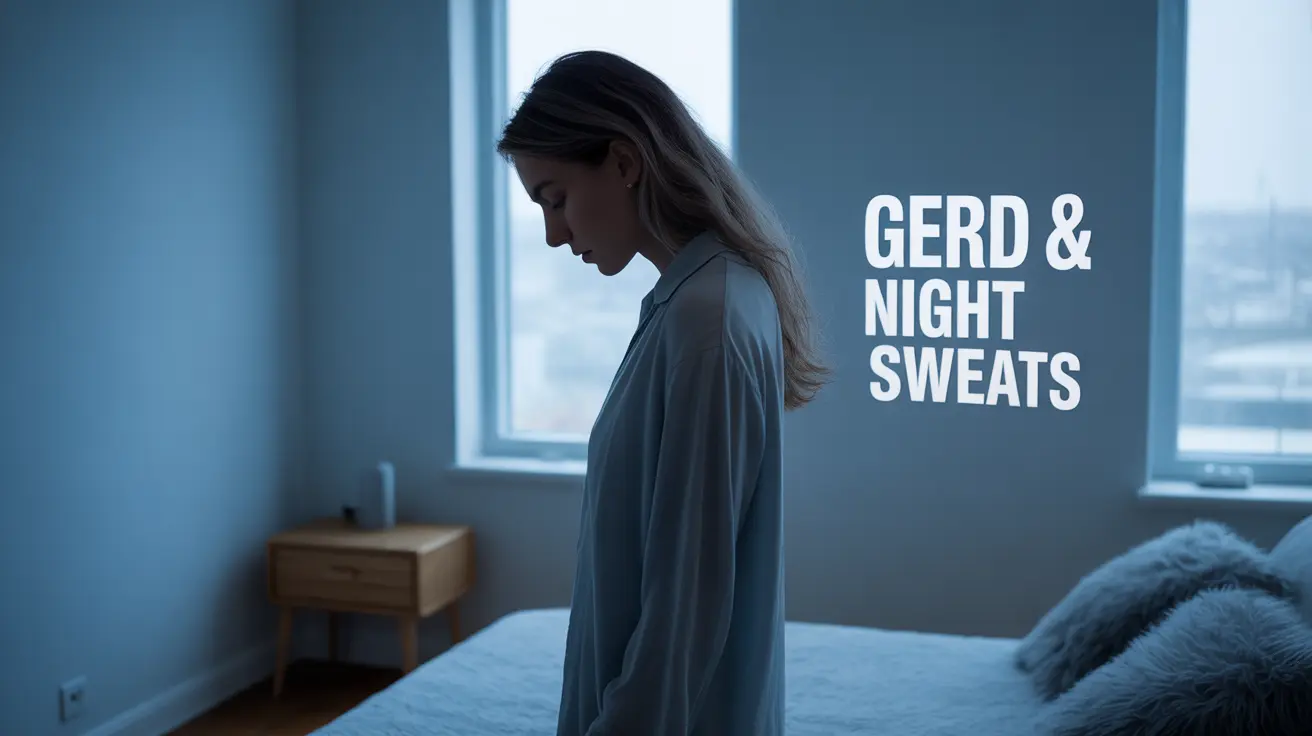Gastroesophageal reflux disease (GERD) can manifest in various symptoms, and one lesser-known but concerning symptom that some people experience is night sweats. Understanding the relationship between GERD and sweating, particularly during sleep, is crucial for those seeking relief from these uncomfortable symptoms.
If you're experiencing both GERD symptoms and night sweats, you're not alone. This comprehensive guide will explore the connection between these conditions, available treatments, and when to seek medical attention.
The Connection Between GERD and Night Sweats
GERD occurs when stomach acid frequently flows back into the esophagus, causing various symptoms. When acid reflux happens during sleep, it can trigger the body's stress response, potentially leading to sweating. This connection isn't always obvious to sufferers, but it's a recognized phenomenon that can significantly impact sleep quality.
How GERD Triggers Night Sweats
During episodes of nighttime acid reflux, your body may respond with:
- Increased stress hormone production
- Activation of the autonomic nervous system
- Inflammatory responses
- Disrupted sleep patterns
Common GERD Symptoms Beyond Sweating
While sweating might occur with GERD, it's important to recognize other common symptoms:
- Heartburn
- Chest pain
- Difficulty swallowing
- Regurgitation of food or sour liquid
- Sensation of a lump in the throat
- Chronic cough
Treatment Options for GERD-Related Night Sweats
Addressing GERD symptoms often helps resolve associated night sweats. Treatment typically involves a combination of approaches:
Medication Options
Several medications can help manage GERD:
- Proton pump inhibitors (PPIs)
- H2 blockers
- Antacids
- Prokinetics
Lifestyle Modifications
Making certain lifestyle changes can significantly improve both GERD and night sweats:
- Elevating the head of your bed
- Avoiding meals close to bedtime
- Maintaining a healthy weight
- Wearing loose-fitting nightclothes
- Avoiding trigger foods
When to Seek Medical Attention
While occasional night sweats might not be concerning, certain situations warrant medical attention:
- Persistent symptoms despite lifestyle changes
- Severe chest pain or difficulty breathing
- Unexplained weight loss
- Difficulty swallowing
- Vomiting blood or black material
Frequently Asked Questions
Can GERD cause night sweats and how common is this symptom?
Yes, GERD can cause night sweats, though it's not among the most common symptoms. The frequency varies among individuals, but studies suggest that approximately 10-20% of GERD patients may experience night sweats during acid reflux episodes.
How does treating GERD affect night sweats and what are the usual treatments?
Treating GERD often leads to improvement in night sweats. Standard treatments include acid-reducing medications, dietary modifications, and lifestyle changes. Many patients report significant reduction in night sweats once their GERD is properly managed.
What other medical conditions can cause night sweats besides GERD?
Several other conditions can cause night sweats, including:
- Hormonal changes or menopause
- Infections
- Certain medications
- Anxiety or stress
- Sleep apnea
- Hyperthyroidism
- Some cancers
What lifestyle changes can help reduce night sweats related to acid reflux?
Effective lifestyle modifications include:
- Eating dinner at least 3 hours before bedtime
- Sleeping with your head elevated
- Avoiding trigger foods like spicy or acidic items
- Maintaining a healthy weight
- Wearing breathable sleepwear
- Managing stress levels
When should I see a doctor if I have night sweats along with GERD symptoms?
Consult a healthcare provider if you experience:
- Persistent night sweats that don't improve with lifestyle changes
- Severe GERD symptoms that interfere with daily life
- Unexplained weight loss
- Difficulty swallowing
- Chest pain
- Chronic cough or hoarseness




